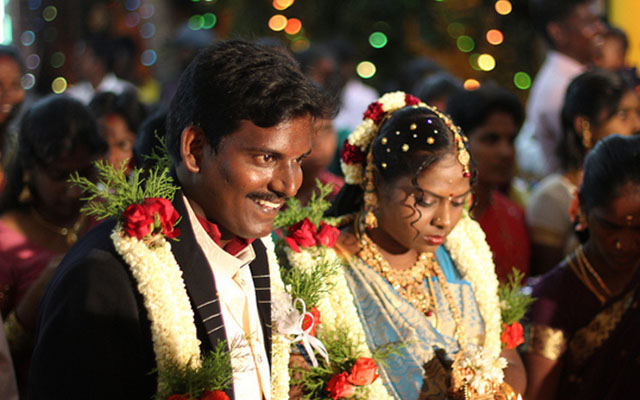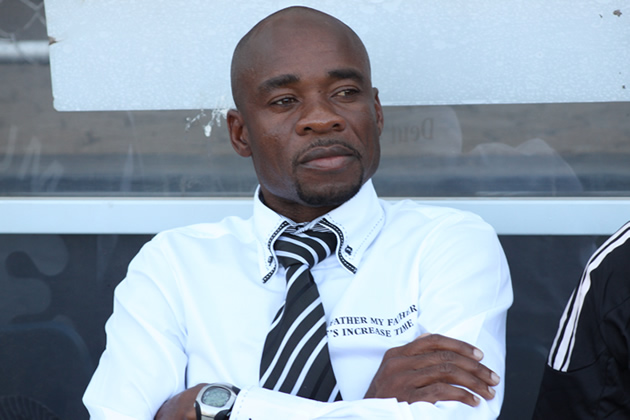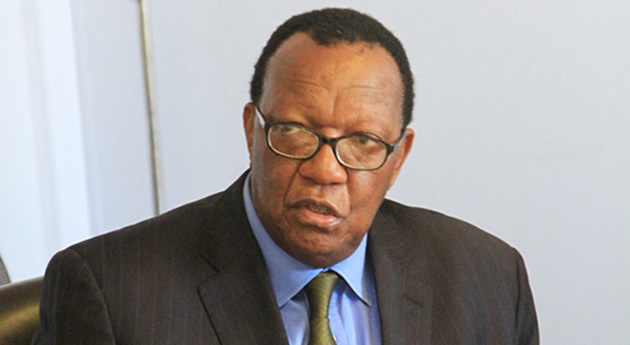Celebrating love in an arranged marriage


“An arranged marriage can work between two people because you are not marrying the woman, you are marrying the whole family. We marry for different reasons”
Sekai Nzenza On Wednesday
Our neighbour Jemba plans to marry a woman he met for the first time last week. The meeting was arranged by his niece, Mai Sinikiwe, who lives in the Resettlement areas near Chivhu. Jemba and the wife-to-be toured his homestead, which is really one small hut that used to belong to his parents.
Jemba’s belongings are all in the hut. There is a pile of maize on one side of the fireplace, while on the other side are Jemba’s blankets and an old suitcase with his clothes.
Jemba sleeps on a mat and spends most of his time either in his fields or doing casual work at our homestead. My brother Sidney taught Jemba in Grade Seven, a long time ago, when Jemba was a young boy. Some people think Jemba is the same age with Sidney, which is not possible. Jemba blames years of hard work as a waiter in Hwange and a difficult marriage for making him old before his time.
When Jemba was ready to return home after his job came to an end, his first wife refused to come back with him. She took their son and disappeared to Zambia or South Africa.
Jemba returned to the village five years ago. His parents and other siblings had already died. His parents’ homestead was in ruins, except for his mother’s hut, where he now lives. During the past couple of years, we have teased Jemba about being a bachelor, who cooks and sleeps alone in these cold winter nights.
“From the end of August, I shall be a bachelor no more,” said Jemba, smoking his newspaper rolled cigarette as always. “My lady called Marvellous or Mavhu, for short, is coming to live with me.” We all shook hands with Jemba and congratulated him.
We were back in the village as usual. Jemba was busy making a mat from reeds while we watched him. His cousin Mbada had stopped by selling some hoes and freshly-caught mice, mbeva.
I had taken one look at the dead mice and could not believe that I used to enjoy these little furry creatures with buck teeth and long tails. There are some childhood special delicacies that one must let go.
Roasted and salted mbeva is one snack I have given up on eating, particularly the head and the tail.
Sidney said he met Mavhu last week. She was a nice fat woman in her late 40s. She never had any children. Piri said Jemba should check if this was true. Some women do not mention that they have children in case the husband-to-be does not want to be a stepfather to anyone.
“This is an arranged marriage,” said Piri”. Arranged marriages work for young people who do not know anything else, but not for men over 40 like you Jemba. Nyenga wega mudzimai”. Find your own woman and propose to her. Jemba shook his head.
He said an arranged marriage works better for older people because these days it is very difficult for a man to meet a woman. “Good single women do not come to the bar where men like me go. Married women and the youths go to church. Where does an older bachelor find a woman, unless a good Samaritan like my niece Mai Sinikiwe helps me to find one?”
“Maybe this woman has nowhere to live. That is why she would agree to marry you Jemba. What have you go to offer her?” said Piri. We thought Jemba would be upset with Piri’s comment. He wasn’t. Instead, he laughed. “A lonely woman with no home is a very good catch for me. I will give her a home and company for the rest of her life. She is not being forced to be my wife”.
“Poverty is forcing her to come and live in a little hut and sleep on the floor,” said Piri. “Sometimes women have no choices. They are forced into situations.
“Then they discover that the situation they have been forced into gives them a much better life,” said Mbada, selecting some big fat mice as gifts to congratulate Jemba for his forthcoming bride.
“Eh, Mbada, speak for yourself,” said Sidney. Mbada nodded and said he is still thanking the ancestors for his wife, even though she had been forced upon him.
We knew Mbada as the older brother of Panichi the terrible, the boy who used to mess up village spring water and steal other people’s mice from traps. Mbada was not like his brother Panichi at all. He was kind, soft spoken and polite. In those days, his girlfriend was called Nyembesi. She lived in a village across Chinyika River. They fell in love during the home defenders’ soccer matches at St Columbus School.
Their parents knew about this romance. If Nyembesi was to get pregnant, then she would tell her Tete or father’s sister. The processes for elopement and lobola would be followed.
That is how it used to work in the village. But Mbada did not marry Nyembesi. Instead, Mbada was forced to marry Dambudzo even though he had only met her for just an hour or a bit more.
One day, Mbada went to Muzorori & Sons Stores to listen to music and dance. Dambudzo from Hamandishe village had also gone to the same shops to buy cooking oil and soap. She met her brothers and other cousins from the Hamandishe family at the shops. These boys were known fighters. If there was a brawl or a problem at Muzorori & Sons Store, people would always inquire if the Hamandishe boys were there. They were tough looking and always longing for a fight.
Before sunset Dambudzo bought soap and cooking oil. She started walking home. Mbada followed her and introduced himself. They walked together and Mbada said he thought Dambudzo was an angel because she was the most beautiful woman he had ever met. His mother would be most grateful to have a muroora, or daughter-in-law like Dambudzo. Dambudzo was flattered. She asked if Mbada had a girlfriend. Mbada lied. He said no, he had been waiting to meet a woman like her all his life.
Mbada’s manner of courtship was not unusual. Most young men proposed love and marriage the minute they met a girl they liked, whether it was on a bus or on the way to the grinding mill. There was no difference between loving and liking. Ndinokuda in Shona could mean I like you or I love you.
Dambudzo did not say she loved or liked Mbada, but her body language and shyness meant she could be persuaded to love him, if they were to meet again. But, before they could promise each other when to meet, the Hamandishe brothers arrived with sticks. They accused Mbada of doing something not proper with their sister.
One of the boys demanded to know why Mbada and Dambudzo were both chewing gum. Gum was meant to give a good taste in one’s mouth before and after kissing. Had they kissed already? If they had, this meant Mbada had plans to be more intimate or had already been more intimate with their sister. Such intimacy showed lack of respect for the Hamandishe clan.
Mbada must take Dambudzo to his home immediately and then send a messenger or munyai to tell the Hamandishe family that he had their daughter and he planned to pay lobola for Dambudzo. Mbada tried to explain that he had only met Dambudzo for the first time that day and he wanted to get to know her better.
The brothers said no, he should take her home or risk a real nasty beating. Dambudzo was forced to hand over the soap and cooking oil to her brothers and cousins. Then she followed Mbada home.
By the time the liberation war started, Mbada and Dambudzo already had two children. They are still married and they have several grandchildren. “That was a good forced arranged marriage,” said Jemba. “The ancestors wanted you to marry Dambudzo and not Nyembesi”.
Mbada said he did not love his wife at first because they were strangers to each other. He paid lobola because he was forced to do so. But he gradually got to know his wife better.
“You see, an arranged marriage can work between two people because you are not marrying the woman , you are marrying the whole family. We marry for different reasons.”
“An arranged marriage between two older people is good for companionship,”said Jemba. “We will enjoy eating roast mice together. If love develops, then that is even better”.
Dr Sekai Nzenza is a writer and cultural critic.










Comments